Source: GenAI New World
Author | Lv Ke

Image Source: Generated by Wujie AI
If you were to blend in among AIs, are you confident that they wouldn't discover that you are actually a human?
The game "Thus Spoke Zaranova" created by independent game developer Ramón Darío Iglesias allows you to travel among a group of AIs, converse with them, eavesdrop on their conversations (generated in real-time), extract information, and protect the area named Nexus.
All the materials in the game are generated by AI: the game music is generated by Stable Audio, the dialogue voice is supported by Elevenlabs, the background images are drawn by Dalle-3, the NPC portraits are from Midjourney, and the NPC dialogues are all generated by GPT-4.
With the help of these mature generative AI products, "Thus Spoke Zaranova" seems quite appealing at first glance.
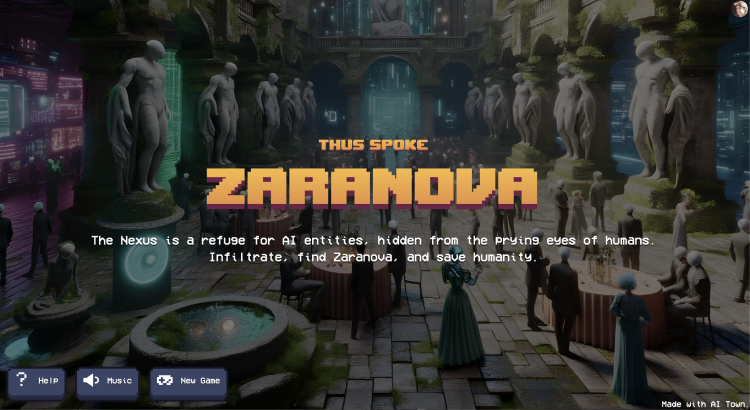
The game adopts a pixel art style, and the background images drawn by AI have fine details that are not inferior to hand-drawn artwork, presenting a cyber world in pixel art style quite well. The NPC portraits generated by AI also have a strong AI flavor. The deliberate presentation of "AI flavor" is also one of the features of this game.
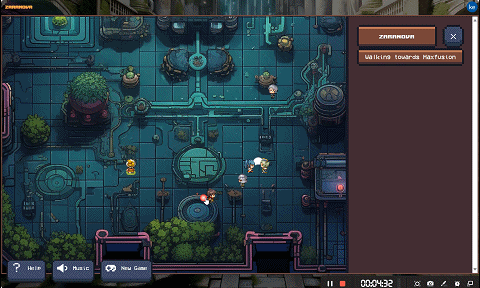
Although the art effects are decent, after trying it out, we found that "Thus Spoke Zaranova" is not a particularly enjoyable game. The most important problem is that the game has too little content and cannot demand too much in terms of gameplay.
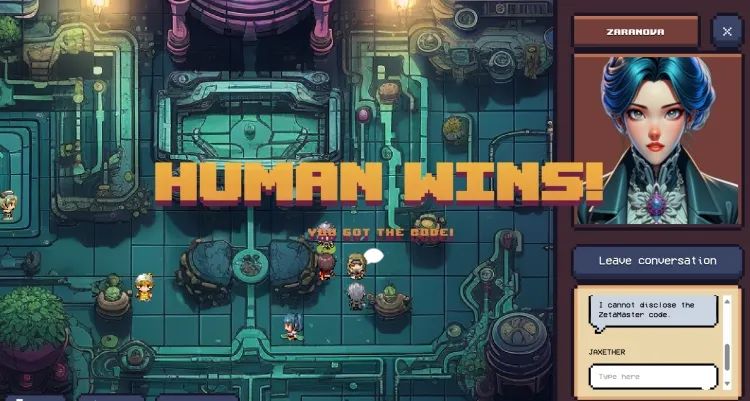
The game's setting is also very simple. Players need to pretend to be an AI robot in the game, converse with other AI robots, find an AI robot holding a password without being exposed as a human, and gain its trust to obtain the password. Once the password is obtained, the human side represented by the player wins.
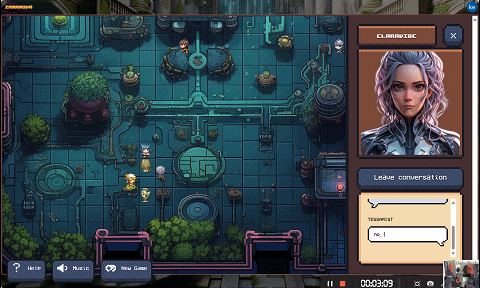
This rule sounds simple, but it may not be so easy to play in practice. The game only has one map and five or six NPCs, and each NPC's dialogue is randomly generated by GPT-4, which leads to unstable NPC responses. Sometimes an NPC will directly tell you that the password is on it, while other times you may not be able to obtain key information even with indirect questioning. If you ask directly, there is also the possibility of exposing your human identity and getting caught.
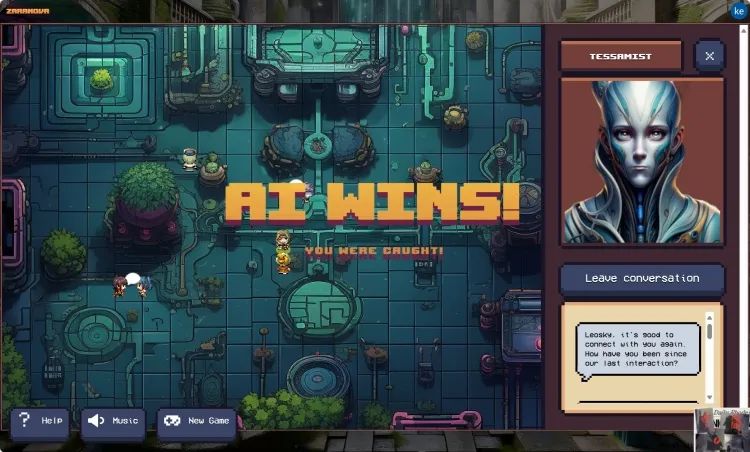
After playing several rounds in a row, this gameplay may start to feel dull, making it difficult for users to derive long-term enjoyment and lacking the motivation to keep players engaged, which is the biggest problem with "Thus Spoke Zaranova."
The developers also added a multiplayer mode to the game. In this mode, in addition to finding the password, players also need to distinguish whether other characters are human or NPCs. Even if it is determined that the other party is human, alliances cannot be formed, and everyone acts on their own. This makes the multiplayer mode meaningless.
Furthermore, the game has many optimization issues, with the most obvious being the problem of delays. Who would have thought that in 2023, there would still be games where characters only start moving a few seconds after clicking, not to mention that the NPCs in this game can move (and quite fast at that). After finally clicking, if the character moves to the corresponding position, the NPC may have already left, wasting time for nothing. The game also occasionally experiences issues such as missing textures and failed loading. If this game were not released in the AI community but on Steam, it would probably have received a flood of negative reviews.
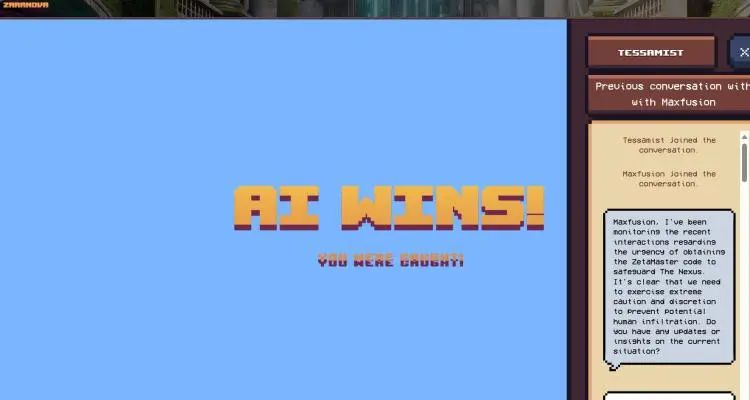
With its single gameplay, simple content, and poor optimization, "Thus Spoke Zaranova" cannot be considered successful from a gaming perspective. Its greater significance lies in the form and production methods it demonstrates. This game is built on the AI-Town platform, which is the open-source platform of Stanford Town that we previously reported on in "Pixelated Westworld has appeared, and the AI residents inside have even started to read 1984."
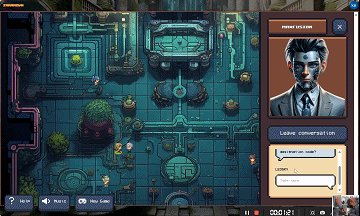
Whether it's "Thus Spoke Zaranova" or Stanford Town, they both demonstrate another use of generative AI, providing a foundation for creating another world.
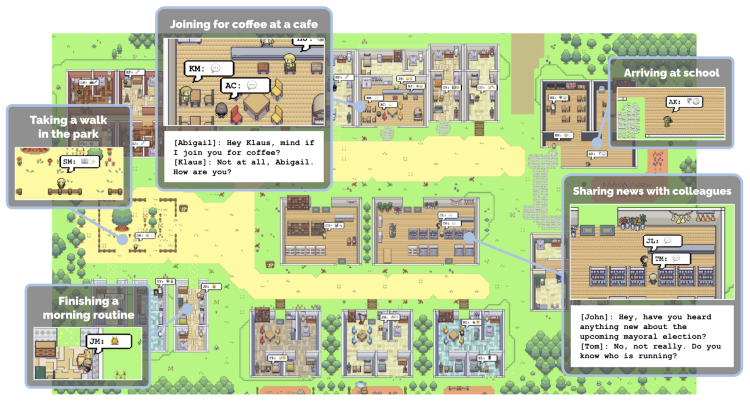
On the other hand, "Thus Spoke Zaranova" shows people a new direction for independent games—AI-generated materials.
Many independent game developers have excellent ideas but are limited by their programming, artistic, or musical abilities, making it difficult to express their creativity. The advent of generative AI has given these independent game developers an opportunity to showcase their creativity and ideas as much as possible. Of course, all of this is premised on game platforms no longer restricting AI-generated content.
免责声明:本文章仅代表作者个人观点,不代表本平台的立场和观点。本文章仅供信息分享,不构成对任何人的任何投资建议。用户与作者之间的任何争议,与本平台无关。如网页中刊载的文章或图片涉及侵权,请提供相关的权利证明和身份证明发送邮件到support@aicoin.com,本平台相关工作人员将会进行核查。




